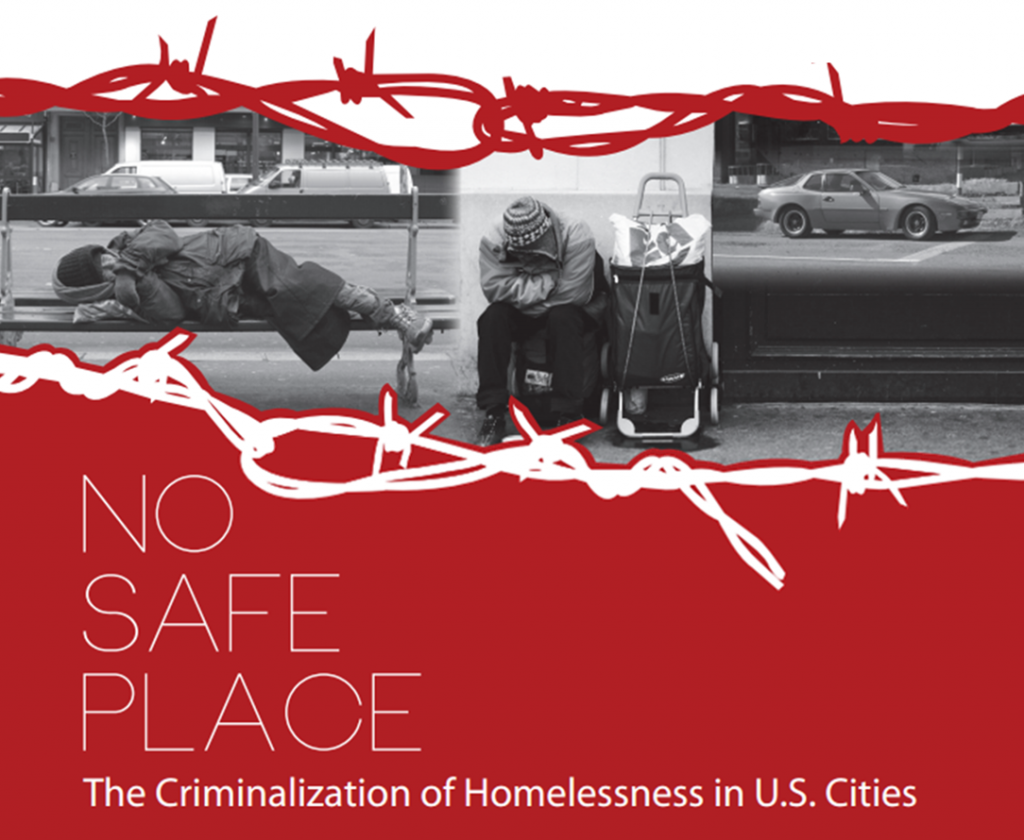 No Safe Place: The Criminalization of Homelessness in U.S. Cities
No Safe Place: The Criminalization of Homelessness in U.S. Cities
Imagine living in a place where it is illegal to sleep, sit, lie down, or share food outdoors. Imagine that this is a place where you are often ignored or rejected by your fellow townspeople, police officers, and local elected officials. While this seems like a ridiculous concept, it is the daily reality for millions of homeless people throughout the United States who are suffering under laws that criminalize their basic life necessities.
Today, the Law Center released a new report, No Safe Place: The Criminalization of Homelessness in U.S. Cities.
This report looks at the landscape of criminalization in America, and finds that “despite a lack of affordable housing and shelter space, many cities have chosen to criminally punish people living on the street for doing what any human being must do to survive. The Law Center surveyed 187 cities and assessed the number and type of municipal codes that criminalize the life-sustaining behaviors of homeless people. The results of our research show that the criminalization of necessary human activities is all too common in cities across the country.” The report shines a spotlight on the fact that still far too many cities criminalize the basic life actions that homeless people have no choice but to perform in public.
No Safe Place also offers examples of effective constructive alternatives to criminalization, and highlights cities that have successfully implemented these solutions. Additionally, the report includes policy recommendations for lawmakers at the federal, state, and local levels, including a call for the federal government to take a leadership role in combatting the criminalization of homelessness and in promoting constructive alternatives.
This report is the Law Center’s eleventh report on criminalization. It builds upon our 2011 Criminalizing Crisis[7] report, which detailed the breadth of anti-homelessness laws and practices in the United States, and provided examples of constructive alternatives to criminalization that are more effective in combating the myriad factors that contribute to homelessness. No Safe Place continues this analysis, and and examines changes and trends in laws within the past three years.
In our ongoing Countering Criminalization[8] blog series, we’ve outlined the various ways in which criminalization laws violate the Constitution, and legal challenges that have been used to combat such laws. No Safe Place finds that despite these challenges, the prevalence of homelessness criminalization is increasing across the country, even though criminalization is the most expensive and least effective way of addressing homelessness.
You can download a copy of No Safe Place by clicking here[9]. If you’re interested in learning more, you can attend the Law Center’s free webinar tomorrow, Thursday, July 17, at 2:00 pm Eastern time – click here [10]to register for free.
— Michael Maskin, Tufts Summer Fellow







0 Comments